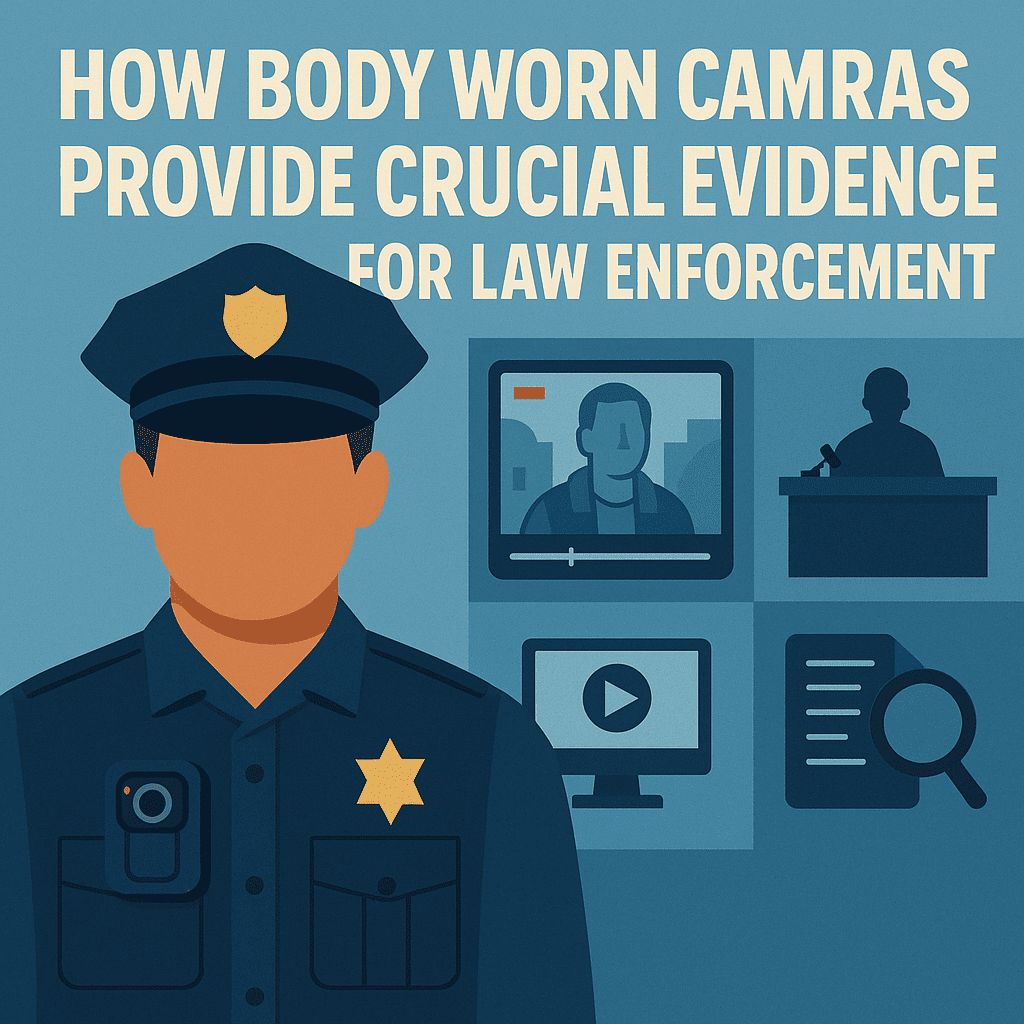Why Body-Worn Cameras Are Becoming Standard in Law Enforcement
As someone who’s spent the last two decades helping people protect what matters most, I’ve seen firsthand how technology—when used the right way—can build trust, reduce conflict, and make a real difference. Body-worn cameras are one of those tools that continue to prove their value, not just for law enforcement agencies, but for the communities they serve.
 The Drive Toward Accountability
The Drive Toward Accountability
In recent years, we’ve all seen the growing demand for accountability—on both sides of the badge. The public has turned to smartphones to document interactions with police, aiming to ensure transparency. Law enforcement, in turn, has responded by embracing body-worn cameras that show events from the officer’s perspective.
And here’s the bottom line: Body cameras work. When officers wear them, complaints drop. Use-of-force incidents drop. And trust begins to rebuild.
The Evidence Is Clear
One of the most influential studies came out of Rialto, California—a city of about 100,000 people. Over a year, the police department required officers to activate their body cameras during every public encounter (with some exceptions, like sensitive cases involving minors or informants).
The results were staggering:
- Use-of-force incidents dropped by 58%
- Citizen complaints fell by 88%
That’s not just a statistic. That’s fewer confrontations. Fewer misunderstandings. More clarity.
Researchers called the cameras a "neutral third eye." I think of them more like a mirror—when we know we’re being watched, we act differently. Better. That goes for civilians and officers alike.
National Adoption Is Accelerating
Because of these successes, demand for body camera programs is soaring. Cities large and small are stepping up. Atlanta rolled out over 1,000 cameras. Chicago invested $8 million to expand their program by 5,000 units. Ohio passed legislation requiring all officers to wear cameras—and backed it with $54 million in funding.
Even the federal government has taken note. Back in 2014, President Obama proposed $263 million for body-worn camera programs. While that amount was later trimmed, the message was clear: body cameras are no longer a luxury—they’re a necessity.
But not every department gets a check. Some agencies are expected to deploy cameras without any budget help. That’s where things get tough.
Officers Taking Action Themselves
At BrickHouse Security, we’ve seen a growing number of officers stepping up on their own—purchasing personal body cameras when their departments couldn’t (or wouldn’t) provide them.
We’ve outfitted law enforcement with everything from professional-grade cameras with cloud backup and HD audio/video, to covert sunglasses and button cameras that work in the field without drawing attention.
In fact, the film End of Watch—released back in 2012—featured officers wearing their own civilian-grade body cams. That might’ve seemed novel then, but today, it’s common practice in departments across the country.
Technology That Builds Trust
At BrickHouse, we’re proud to be a trusted partner to both agencies and individual officers. We offer a full range of solutions—from high-end law enforcement systems to discreet personal devices. Because whether you’re protecting a city block or your own reputation, the right tool can make all the difference.
And here’s something I believe deeply: Transparency builds trust. We’ve seen it with GPS tracking. We’ve seen it with hidden cameras. And now we’re seeing it with body-worn devices. As body cams become more affordable and accessible, we’re likely to see them spread beyond law enforcement—to security, healthcare, even politics.
When people know they’re being recorded, they’re more likely to treat each other with respect. That’s a future I’m proud to support.
Posted by Todd Morris on Nov 10th 2024

